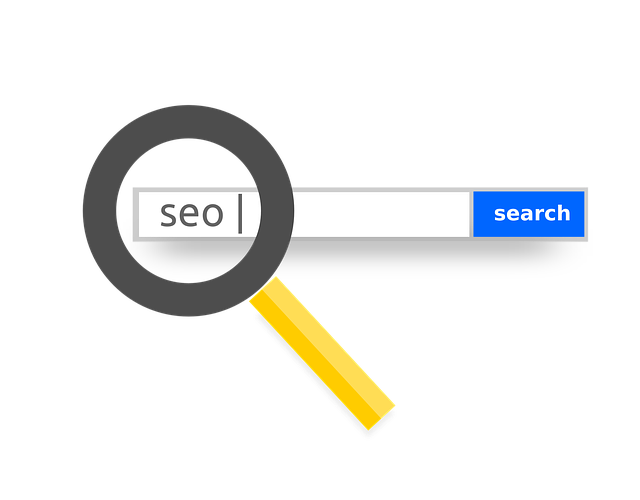SEO services for new websites are vital for online success and visibility. Keyword optimization involves in-depth research to identify relevant terms, integrated into content to attract targeted traffic. This process starts with understanding user intent and creating valuable content, enhanced by meta tag optimization. Effective strategies include keyword research tools, competitor analysis, on-page optimization (titles, headings, images), off-page techniques like guest blogging and social media engagement, and continuous monitoring through analytics for refinement. Continuous optimization ensures new websites stay relevant, outperforming competitors in a dynamic digital landscape.
Launching a new website is an exciting step, but ensuring it’s found by your target audience requires strategic keyword optimization. This comprehensive guide delves into the essential practices for new websites, from understanding the fundamentals of keyword optimization to leveraging SEO services and conducting competitor analyses. Learn effective on-page and off-page strategies, measure keyword performance, and discover continuous optimization techniques to stay ahead in search engine results. Master these SEO services for new websites and watch your online visibility soar.
Understanding Keyword Optimization for New Websites

Keyword optimization is a fundamental aspect of SEO services for new websites, ensuring their online visibility and success. It involves strategic research and implementation to identify relevant keywords that potential customers are searching for and incorporating them naturally into your website’s content. This process begins with understanding the target audience’s language and needs, enabling you to create valuable, keyword-rich content that resonates with your ideal users.
By optimizing new websites for keywords, you enhance their search engine rankings, making them more discoverable in organic search results. SEO services tailor this optimization to specific industry terms, location-based queries, and long-tail keywords, which can drive highly targeted traffic. Effective keyword utilization also includes meta tag optimization, where title tags and meta descriptions are crafted with keywords to provide clear signals to both search engines and users about the website’s content.
The Role of SEO Services in Launching a Website

When launching a new website, SEO services play a pivotal role in its success and visibility online. These services are essential tools to ensure your site isn’t just built but also strategically positioned for search engines to recognize and rank highly. SEO experts offer a range of optimizations tailored to new websites, from keyword research and on-page optimization to building high-quality backlinks, all aimed at improving your website’s organic search performance.
Effective SEO services for new websites involve in-depth keyword analysis to identify the terms your target audience is using when searching for products or services similar to yours. This knowledge guides the creation of compelling content that resonates with users and satisfies their intent. Additionally, SEO professionals implement technical optimizations, ensuring your site is crawlable and indexed properly by search engines, which is crucial for gaining visibility and driving targeted traffic.
Identifying Target Keywords for Your Audience

When launching a new website, one of the most critical steps in the SEO process is identifying the right target keywords for your audience. These keywords are the terms and phrases that potential customers use when searching for products or services similar to yours online. Conducting thorough keyword research can help you understand your target market’s language and preferences.
Effective SEO services for new websites begin with this meticulous process. Tools like Google Keyword Planner, SEMrush, or Ahrefs can assist in uncovering relevant keywords, analyzing search volume, and assessing competition. By selecting the right mix of primary and secondary keywords, website owners can optimize content to rank higher on search engine results pages (SERPs). This strategy ensures that when your target audience searches for solutions, your website is visible and relevant, ultimately driving more traffic and potential conversions.
Conducting a Competitor Analysis for Keyword Strategy

To develop an effective keyword strategy for your new website, conducting a comprehensive competitor analysis is essential. This involves researching and understanding what keywords your direct competitors are targeting and how they’re performing in search engine rankings. Tools like Google Keyword Planner, SEMrush, or Ahrefs can help you identify high-volume, low-competition keywords that align with your business goals. By analyzing not only the keywords but also the content strategies, backlink profiles, and on-page optimization techniques of your competitors, you gain valuable insights into what works well in your industry.
This competitive landscape analysis allows you to make informed decisions about which keywords to target. You can identify gaps where your competitors are lacking or capitalize on opportunities where they’re underperforming. Incorporating these insights into your SEO services for new websites ensures that your content strategy is tailored to meet the search intent of your target audience, ultimately improving your site’s visibility and ranking in search engine results.
On-Page Optimization Techniques for Effective Keyword Integration

When optimizing a new website, on-page techniques are crucial for seamlessly integrating keywords that improve search engine rankings. This involves optimizing essential elements like titles, headings (H1–H6), and meta descriptions to naturally incorporate target keywords while maintaining readability and relevance. Each page should have a unique, keyword-rich title that accurately reflects its content, with relevant headings structuring the page in a logical manner.
Additionally, using keywords in image file names and alt tags enhances visual SEO. It’s also vital to ensure the content is high quality, providing real value to users, which not only satisfies search engine algorithms but also keeps visitors engaged, leading to lower bounce rates and higher time spent on page—all factors that contribute to effective SEO services for new websites.
Off-Page SEO Strategies to Build Authority and Backlinks

Off-page SEO is a powerful strategy for new websites looking to establish authority and gain valuable backlinks. It involves activities outside your website, such as engaging with other websites, social media platforms, and online communities, to increase your site’s visibility and credibility. One effective method is guest blogging on reputable sites within your niche; this not only exposes your brand to a new audience but also allows you to include relevant keywords and backlinks to your site naturally.
Social media marketing plays a significant role here. By actively participating in relevant groups and discussions, sharing valuable content, and interacting with influencers, your website gains exposure and can attract organic traffic. Additionally, building relationships with industry leaders and other websites through collaborations or partnerships can lead to high-quality backlinks, which are considered a strong signal of authority by search engines. These strategies collectively contribute to the overall SEO services for new websites, enhancing their online presence and search rankings over time.
Measuring and Analyzing Keyword Performance

Measuring and analyzing keyword performance is a vital step in optimizing new websites for search engines. By employing robust SEO services, businesses can track how well their targeted keywords are ranking and gain valuable insights into user behavior. Tools like Google Analytics and Search Console provide data on keyword visibility, click-through rates, and conversion metrics, enabling marketers to refine content strategies accordingly. Regularly monitoring these metrics helps ensure that the website remains relevant and performs optimally in the competitive digital landscape.
Additionally, analyzing keyword performance allows for a better understanding of the target audience. Identifying which keywords drive the most organic traffic and conversions can help guide future content creation and marketing efforts. This data-driven approach enables businesses to create more effective SEO strategies, ultimately improving their online visibility and attracting a broader range of potential customers.
Continuous Optimization: Staying Ahead in Search Engine Results

In the dynamic landscape of digital marketing, continuous optimization is key to staying ahead in search engine results, especially for new websites looking to establish themselves. SEO services for new websites aren’t a one-time fix; they require ongoing strategy and refinement. Regularly reviewing and updating content, meta tags, and backlink profiles ensures your site remains relevant and attractive to search engines like Google. This involves closely monitoring analytics data to identify areas of improvement and adjusting keywords accordingly to match user search intent.
By embracing a culture of continuous optimization, new websites can outpace competitors and climb search engine rankings faster. It’s about understanding the ever-evolving algorithms and trends in digital marketing, leveraging data-driven insights, and making proactive changes. This relentless pursuit of improvement keeps your site visible, relevant, and competitive in today’s crowded online environment.
